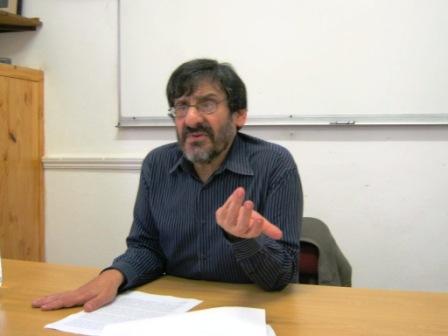
We are beginning to understand that the gap between what many earn and what they need is a cause of some of our problems. We now need to understand the changes we must make to fix this.
Over the past few weeks, we have seen evidence that debt is a key problem for many South Africans. Since this has coincided with violent strikes, the possibility that the strikers may be deep in debt is emerging as a possible cause of the conflict. We hear calls to tighten rules governing credit and educate borrowers on the consequences of recklessness.
But the nature of the problem and the solution are less clear than this suggests.
There are gaps in our information. If strikes have been more intense because of debt, then why is this so only in some industries? Why would miners be up to their eyes in garnishee orders, but not metal or chemical workers?
It is also unclear whether people are borrowing because they are starving or because they want to become middle class. Some reports say people are borrowing to buy food. Others reply that the census found that, of our 14.5-million households, almost 10.7million have a TV, 9.9-million have a fridge. People who own TVs and fridges are, we are told, not borrowing to survive: they are trying to finance a lifestyle they cannot afford.
Of course, there are nearly 4-million households without a TV or fridge, and so many people may be borrowing to feed their families. But we don’t know everything we need to know about debt and so we should be wary of sweeping statements about why people are in debt and what this means.
Despite the information gaps, we know that many people are running up debts they cannot repay. Whatever their reasons, simply tightening the rules governing credit and applying them more strictly will not solve the problem. If people are borrowing because they would starve if they didn’t, tightening credit will create a human disaster. The solution would have to ensure everyone had enough to survive without borrowing.
If they are borrowing to enhance their lifestyle, cutting off credit may achieve little. Some legal lending practices might be worsening the problem, but so is illegal lending, which is not affected by changes in the law — we don’t have the capacity to rein in illegal lenders.
Even if we miraculously found a way to ensure that people borrowed only what they could pay back, cracking down might cause as much conflict as reckless lending and borrowing do now.
People do not borrow because they are ignorant — research on housing suggests the poor know that getting into debt is harmful: this is why they do not want mortgages. Where people borrow to buy goods they don’t need to survive, the reason is, rather, the messages they hear from those at the top of the society.
In some market economies, people do not flaunt their wealth in public because this invites attacks on the affluent. Here, owning is a status symbol. We are told repeatedly that, if we want to earn the respect of others, we need to own as much as we can: consumer goods are not simply means of satisfying needs, they are signs that the owner is to be taken seriously.
This is why research shows that youngsters hijack cars not because they are hungry but because they want to buy the clothes and cars and consumer durables which make others respect them. If the need to show that you own what somebodies own is enough to get people to steal, it is enough to get them to borrow. And so at least part of the solution is to send out messages that wealth is not our sole measure of worth.
A voluntary pay freeze by people at the top in the government and business would send a powerful signal and be worth the reduced taxes of which some with tunnel vision warn. We need more business leaders to follow Jacko Maree’s example of giving up his bonus to fund education and we need public officials to show they are living less lavishly.
Making wealth a status symbol in a highly unequal society is bound to create tensions, so we need to signal that a market economy need not be governed by values in which what we own is the measure of what we are.
Trying to solve a deep-rooted problem by encouraging people to change their values may seem naive. But this country’s recent history shows that attitudes that seemed set forever were changed because those at the top sent out different messages — the political settlement of 1993 happened partly because the elite actively prepared their supporters for change by warning them that new values were needed.
They did this because they came to realise that the values they then proclaimed would ruin them. Attitudes to wealth today may be as destructive as attitudes to race were then. And they too must change if we are to find a sustainable way forward.
• Steven Friedman is director of the Centre for the Study of Democracy at Rhodes University and University of Johannesburg. This article was published on Business Day online.
